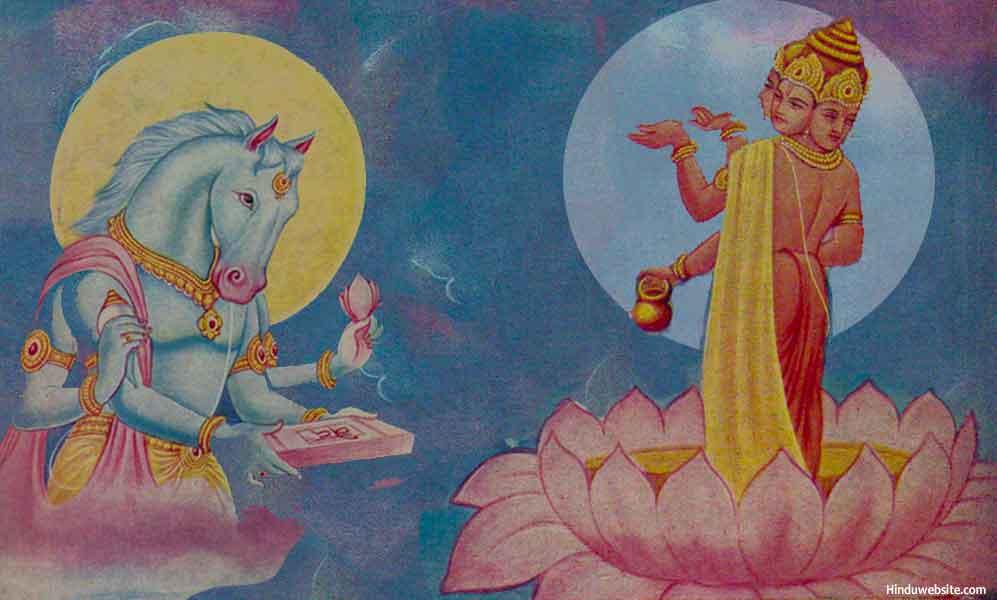
Hymns to Aryaman from the Rig-Veda - Book I

HYMN XLI. Varuna, Mitra, Aryaman.
1 NE'ER is he injured whom the Gods Varuna, Mitra,
Aryaman,
The excellently wise, protect.
2 He prospers
ever, free from scathe, whom they, as with full hands, enrich,
Whom they preserve from every foe.
3 The Kings drive far
away from him his troubles and his enemies,
And lead him
safely o'er distress.
4 Thornless, Adityas, is the path,
easy for him who seeks the Law:
With him is naught to anger
you.
5 What sacrifice, Adityas, ye Heroes guide by the path
direct,-
May that come nigh unto your thought.
6 That
mortal, ever unsubdued, gains wealth and every precious thing,
And children also of his own.
7 How, my friends, shall we
prepare Aryaman's and Mitra's laud,
Glorious food of Varuna?
8 I point not out to you a man who strikes the pious, or reviles:
Only with hymns I call you nigh.
9 Let him not love to speak
ill words: but fear the One who holds all four
Within his
hand, until they fall.
Suggestions for Further Reading
- The Rig Veda translation by Griffith, Introduction
- Hymns of the Sama veda translated by Ralph T.H. Griffith
- Yajur Veda: The Veda Of The Black Yajus School
- Hymns Of The Atharva-Veda
- Anugita English Translation
- THE Sanatsugâtîya, A Spiritual Dialogue
- Dharmashastras, the Sacred Law Books of Hindus
- The Hindu Dharmashastras, Subject Index
- The Grihya Sutras, The Vedic Domestic Ritual Texts
- The Sankhya Sutras of Kapila, Index page
- Translation of Upanishads by Swami Paramananda, Index
- A History Of Indian Philosophy - Chapter Index
- The Upanishads translated by Max Muller
- Vedic Reader for Students
- The Bhagavad-gita in a nutshell
- Essays On Dharma
- Esoteric Mystic Hinduism
- Introduction to Hinduism
- Hindu Way of Life
- Essays On Karma
- Hindu Rites and Rituals
- The Origin of The Sanskrit Language
- Symbolism in Hinduism
- Essays on The Upanishads
- Concepts of Hinduism
- Essays on Atman
- Hindu Festivals
- Spiritual Practice
- Right Living
- Yoga of Sorrow
- Happiness
- Mental Health
- Concepts of Buddhism
- General Essays
Source: An English translation of the Vedas by Ralph T.H. Griffith, 1896.